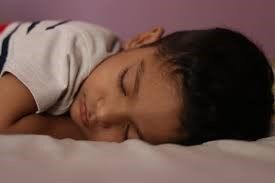
Communities and researchers across the globe are beginning to study how the COVID-19 pandemic and subsequent social distancing has impacted psychological and emotional well-being. The practice of quarantine has been essential in limiting the spread of the within the United States and across the globe. Although it is necessary as a public health measure, it does create an unnatural environment for both our body and brain. (Cacipoppo et al., 2014). Indeed, one of the risks of quarantine is that it causes feelings of and loneliness (Brooks et al., 2020).
We are naturally driven to be social and make connections with others and it can be much harder to foster relationships when physically isolated (Cacioppo et al., 2014). In fact, scientists believe that being social with others is so important that our brain causes us to experience loneliness as a “wake up call” to urge us to reach out to others (Cacioppo et al., 2014). In this way, the feeling of loneliness is meant to protect us from the dangers of being alone. But what happens when stay-at-home measures prevent us from responding to this natural cue? Sleep may be the answer (Richardson, 2019). In this article, we will discuss the role that sleep can play in mitigating the negative impacts of COVID-19, particularly in young people.
The Effects of Isolation on Mental Health
In a report published earlier this year, a research team led by Dr. Samantha Brooks of King’s College, London, investigated the mental health repercussions of quarantine documented across several diseases such as Ebola, SARS, and MERS (Brooks et. al., 2020). These viruses surfaced within the last two decades within different parts of the world. The SARS virus arose in 2003 in Asia (CDC, 2017), followed by the emergence of MERS in Saudi Arabia nearly a decade later in 2012 (CDC, 2019). More recently, Ebola surfaced in 2014 within West Africa (Brooks et al., 2020). These researchers found that quarantine is associated with high levels of , , Posttraumatic- Disorder () – an disorder often associated with flashbacks caused by experiencing , and stress. Importantly, these negative effects did not take long to develop. For example, it took only ten days of quarantine to produce symptoms of PTSD. For those of us who have experienced quarantine over the past several months, these findings may not be completely surprising. Indeed, it is easy to see how physical isolation can lead our mental health to suffer due to our own experiences staying indoors for such a long period.
Beyond these general results, the research team also looked at specific quarantined groups – such as hospital employees and children— to understand how they are affected psychologically. Across the wide variety of pandemics studied, medical staff in quarantine reported high levels of stress, as well as of social isolation and social detachment.

Source: Source: PxHere / No Attribution Listed on PxHere
The effects of quarantine on youth, however, are even more alarming. The research team report that children in quarantine were exhibit signs of PTSD that far exceeded those found in non-isolated children, according to information provided by parents about their children’s behavior in quarantine (Sprang & Silman, 2013). Specifically, Brook and colleagues shared that ‘children in quarantine showed levels of PTSD symptoms four-times higher than children who had not been in lockdown.’ While it may be natural to assume that these mental health impacts would immediately reverse once quarantine ends, the study’s findings warn that the effects of quarantine do not evaporate quickly. This may be one of the most important outcomes of this paper.
On the subject of how long the mental health impacts of quarantine can last, Brooks and colleagues state that the anxiety symptoms acquired during quarantine can persist for as long as six months after quarantine ends. In this way, it is important to be aware that the psychological impacts of quarantine don’t end when the doors open and that in actuality, the mental health effects will likely remain for even months after the period of physical isolation ends.
Therefore, it is clear that there is a strong link between isolation and poor mental health in quarantined youth as a whole. Furthermore, the team highlights that within this group, young women between ages 16-24 years old are particularly susceptible to these negative outcomes from quarantine. This pattern holds true in a recent report focusing on COVID impacts in Spain, which notes that women and girls in Spain have shown greater levels of anxiety symptoms than men due to the impacts of the virus more generally (Gonzalez-Sanguino et al., 2020).
Based on these findings, it is clear that the isolation associated with quarantine presents serious mental health risks to many members of our community, especially our youth. How do we limit these impacts?
The Role of Sleep
Part of the answer may be to encourage healthy sleep in quarantined youth. While it may seem like a common-sense answer, our brain can play a critical role in helping us function effectively during the stress of isolation (Richardson et al., 2019). Adequate rest is critical for many physical functions, but what may be less known is that it is particularly important for controlling or regulating our emotions (Richardson et al., 2019). While we sleep, our brain processes the events of the day and stores some as memories (Richardson et al., 2019). Many of our memories are paired with strong emotions, which could potentially negatively impact us in the future. However, our brain is able to prevent this fate by decreasing the strength of those emotions (Richardson et al., 2019). In this way, our brain preserves our mental well-being and prevents us from being weighed down by the challenges we face in our daily lives.
However, youth between 10-13 years old are likely unable to reap these benefits since they are commonly sleep deprived (Richardson et al., 2019). While it is recommended for teens to sleep between 7.5 to 9.5 hours per night (Short et al., 2019), they are often unable to meet this recommendation because they often sleep for too short a time duration and, in the time they do sleep, often are achieving poor quality rest (Richardson et al., 2019). Lack of sleep in youth was a concern long before COVID-19 and is especially critical now because it may be putting them at high risk for experiencing mental health difficulties such as anxiety and depression during the social isolation of quarantine (Richardson et al., 2019). Indeed, research shows that loneliness tends to occur alongside lower sleep quality (Matthews et al., 2017), as well as other negative health impacts such as ideation and increased risk of drug use (Leigh-Hunt et al., 2017). Given that social isolation is so dangerous to the of youth, how is sleep related to both social isolation and risks for mental health problems in young people?
Sleep as a Determining Factor

Source: Source: Needpix / No Attribution Listed on Needpix
Dr. Cele Richardson and colleagues from Macquarie University in Sydney, Australia, have shown in a recent study (conducted before COVID-19 outbreak) that sleep plays a major role in determining whether loneliness leads to subsequent mental health outcomes (Richardson et al., 2019). In their investigation, the team studied a sample of 528 Australian youth between ages 10 and 12 years old to understand how sleep was related to social isolation. The children reported the extent to which they felt socially isolated in their daily life, and provided data about their sleep: specifically, how long they slept for and their experience of daytime fatigue. Furthermore, the researchers also collected information about their symptoms of depression and anxiety.
In analyzing the data, the researchers found that children showing greater social isolation, in combination with greater fatigue, are at high risk for displaying more severe symptoms of depression. They also found that length of sleep (sleep duration) determines whether youth who are socially isolated will go on to develop various types of mental health challenges such as depression, general anxiety, and . In other words, socially isolated youth who do not sleep enough will tend to show higher levels of depression and anxiety, whereas those youth who get proper rest will show lower levels.

Source: Source: Needpix / No Attribution Listed on Needpix
Tips for Healthy Sleep During Quarantine
Combining the findings of this research with the data collected by Dr. Brooks, it is clear that sleep can serve as a buffer for the dangerous mental health impacts of isolation and loneliness. So how can we improve sleep quality and duration for youth? Here are three practical tips that can help everyone reap the benefits of sleep during quarantine:
1. Stay Busy
The experience of boredom can lead to a sense of emotional isolation which in turn, can predict mental health risks (Brooks et al., 2020). Social media is one way to continue engaging with family and friends and avoid the risks of boredom during quarantine (Hwang, 2020; Brooks et al., 2020).
2. Exercise
Staying active during the day and engaging in exercise during quarantine can help your body fall asleep more quickly at night, ensuring a longer sleep duration, in addition to sleep that is better quality (Short et al., 2019). More broadly, exercise also has links to lowered risk for neurodegenerative diseases like and is therefore beneficial for overall mental well-being (Hwang et al., 2020).
3. Sleep on Schedule
and waking up at different times during the weekdays and weekends is problematic for developing a healthy sleep schedule (Short et al., 2019).
Samantha Aubé (Summer research fellow at Yale) and Reuma Gadassi Polack (postdoctoral fellow at Yale) also contributed to this post.